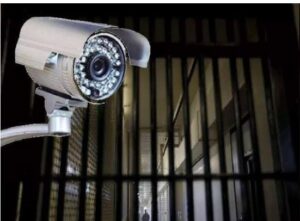Conditional Bail

Personal liberty and Right to Privacy is akin to a Human right available to all since birth.
 Principally, the Article 21 of constitution mandates personal liberty to all its citizens.
Principally, the Article 21 of constitution mandates personal liberty to all its citizens.
The moot question however remains whether this principle of Right to Privacy is applicable in respect of under trial prisoners while they are in judicial custody.
 Even though the principle of “bail and not jail” has been propounded and regularly reiterated by the Apex court in its various decisions, getting bail has never been an easy affair for under trials.
Even though the principle of “bail and not jail” has been propounded and regularly reiterated by the Apex court in its various decisions, getting bail has never been an easy affair for under trials.
Even in cases where bail is granted, the same comes with various conditions like monetary deposits, surrender of passport, undertaking of not taking domestic or overseas travel without prior permission of the competent court, non-destruction or tampering of evidences, non-intimidation of witnesses etc. for fulfilment by the accused to sustain continuance of his/her bail. The grant of conditions purely being a matter resting at discretion of learned judge.
As regards issue of necessity of imposing bail conditions, the subject possesses divided opinions. Though a school of thought subscribes to the view that the grant of bail should be unfettered, the critics of this hypothesis feel that conditional bail guarantees a compliant, disciplined conduct of under trial and acts as a deterrence for any misconduct like tampering with evidence or intimidating the witness or even jumping the bail per se.
Notwithstanding bails being granted with stringent conditions there have been many instances in the country where the under trials have caused injury to the witnesses or tampered evidence or jumped bail and in many cases, the police authorities are still clueless, even after many years, about whereabouts of the accused.
A case of sufficiency of bail conditions have recently come up for consideration before the Hon’ble Apex court. In its recent judgement Hon’ble Delhi High Court has granted conditional bail to an accused and one of the condition states that the accused would be required to share his live location with the IO of his case. The accused has challenged this condition as violative of Right to Privacy of an under-trial accused.

Technology is redefining the legal field at great speed. A large component of the legal framework has shifted to an online approach in the last few years. Covid pandemic accelerated this process. As a result of the digitalization of the legal industry, multiple new trends have emerged. Thus, now we have online court proceedings, filling of petitions recording of evidence etc. The new changes are capable of providing, quick, convenient, economical or rather cost neutral, solutions to many areas of delivery of justice.
 The question thus arises as to when technological advancements can be effectively utilized in so many other fields concerning legal administration why not in monitoring real time location of an under trial granted bail. The hitherto prescribed condition that the under trial would be visiting the jurisdictional police station say on weekly basis at fixed time primarily intended at ensuring that the bail recipient has not jumped the bail. So now with better available tech tools of real time location monitoring why can’t they not be substituted or complimented with normal conditions of attendance before police authorities.
The question thus arises as to when technological advancements can be effectively utilized in so many other fields concerning legal administration why not in monitoring real time location of an under trial granted bail. The hitherto prescribed condition that the under trial would be visiting the jurisdictional police station say on weekly basis at fixed time primarily intended at ensuring that the bail recipient has not jumped the bail. So now with better available tech tools of real time location monitoring why can’t they not be substituted or complimented with normal conditions of attendance before police authorities.
The issue of Right to Privacy of an under-trial accused appears to be an argument worth examining. Whenever a person is proceeded against by law enforcement authorities and send to judicial custody, during the currency of trial, he/she loses full rights of enjoyment of one’s right to freedom of movement, right to privacy etc. and is entitled to only restricted or permitted rights- a situation which continues even when bail is granted. Ultimate freedom is only guaranteed upon exoneration by a competent court of law.
It is an universally acclaimed principle that law is not a static discipline and that it keeps on changing as per contemporaneously emerging socio- economic political aspects. Emergence of newer technology and its incorporation is a concept which cannot be ignored in the evolution of new laws. Technology is something which has now become an essential tool in the growth and development of mankind. The humanity today cannot afford to be selective in embracing technology so long as the same yields standard uniform results.
The moot question than that comes is why when there exists a need to grant conditional bail and a cost neutral complimentary technology to ensure strictest compliance by under trail to bail conditions and also dampens any temptation to jump bail, then why not put one. The cost of monitoring one under trial by using his live location will be far less than spending tons and tons of taxpayers hard earned money in launching a manhunt to search him.
The law of balance of convenience weighs heavily in support of using latest technological advancements in keeping a track on under trials rather than benefitting them by on issue of personal privacy. In fact, there exists a need to amend laws by making real time location sharing by the accused a compulsory condition for grant of bail.

If cctv cameras can be installed within jail premises for security reasons to monitor inmates, why can’t we utilize real time location sharing to monitor movement of an inmate while on bail.
A final decision, for compliance by all, on the matter, would however by taken Hon’ble Apex court in times to come.
Advocate Mamta Shukla
Co- Founder Vijay Foundation
(Views Express in this Article are Purely Personal)

